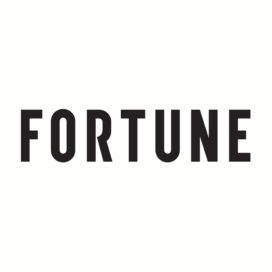Generating alpha through….ethics
Published: April 21, 2015 / Author: Joseph Holt

Just as parents have to decide what message to send to their children when it comes to desired behavior, so firms have to decide what message to send to their employees when it comes to ethics and compliance. Parents can send the negative message of “Don’t embarrass us.” Or they can send the positive message of “Make us proud,” or, perhaps even better, “We know you will make us proud.”
Firms can similarly send a “Don’t embarrass us” message in the aim, structure and content of their ethics and compliance programs, and most do. Boeing’s Code of Conduct is representative of many companies in its message that “Employees will not engage in conduct or activity that may raise questions as to the company’s honesty, impartiality, reputation or otherwise cause embarrassment to the company.”
Most firms understandably emphasize the negative side of ethics because most of them focus on ethics after legal troubles stemming from misconduct. But firms would do better to be proactive rather than reactive and to send a more positive message. Former IBM CEO Sam Palmisano sent his employees a positive message in his cover letter to IBM’s Business Conduct Guidelines: “I hardly find it necessary to remind IBMers to ‘act ethically.’ I know you feel as strongly as I that anyone doing otherwise does not belong at IBM.”
The “Don’t embarrass us” message represents an emphasis on the negative side of ethics, negative in the sense of having a goal of avoiding something bad rather than achieving something good. The “Make us proud” and “We know you will make us proud” messages represent an emphasis on the positive side of ethics.
Firms that emphasize the positive side of ethics are realistic but idealistic as well. They realistically recognize that human nature is such that there will be a need for a robust compliance program in even the best companies. But they idealistically view compliance as a minimum threshold and aim beyond it to do their work consistently with higher standards than the law requires and in a way that inspires greater pride, motivation and productivity in their employees and greater trust and loyalty in clients and shareholders. That is good in itself and also good for the bottom line.
Many firms profess a commitment to “the highest standards of ethical conduct.” But they never clarify what those standards are. That leaves you wondering how sincere and meaningful the professed commitment is. If firms are going to commit to those highest standards then they should indicate what those standards are and what behavior they require and inspire. In the meantime, though, it should be clear that the standard of aiming no higher than the law requires is not high enough. Harvard Business School professor Lynne Sharp Paine, a leading authority on ethics in business, observed “Those managers who define ethics as legal compliance are implicitly endorsing a code of moral mediocrity for their organizations.” And as former SEC Chair Richard Breeden pointed out, “It is not an adequate ethical standard to get through the day without being indicted.”
Follow Joe Holt on Twitter: @busethicsdude
Related Stories




